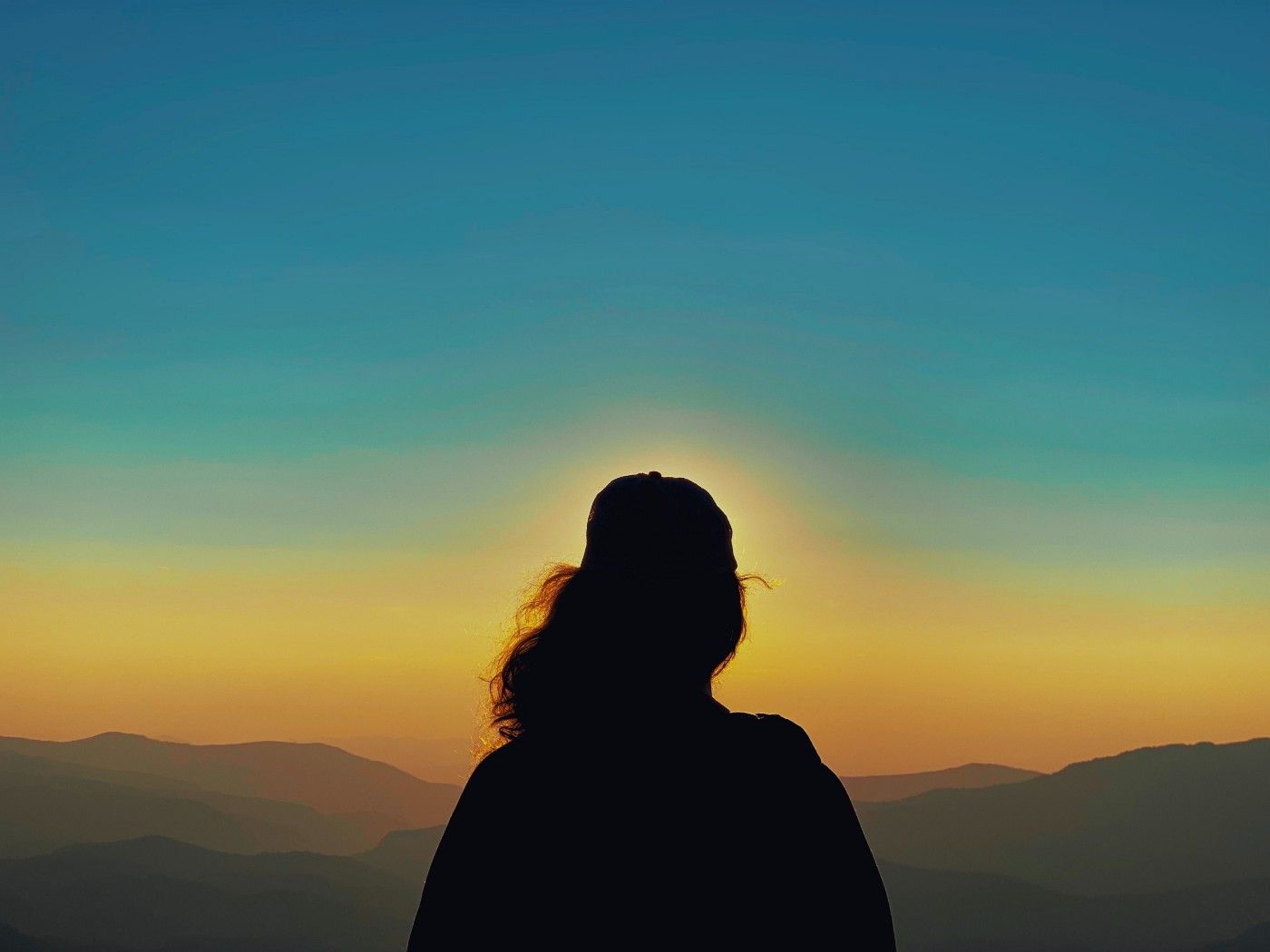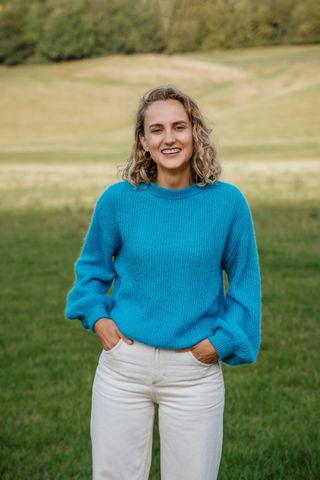Exploring Expanded Awareness
Insights from Andrew Huberman (Huberman Lab), Sam Harris (Waking Up app) and Michael Ashcroft (Alexander Technique).

There’s this 'thing' I’ve been coming across everywhere lately.
I’m wary of writing about it. I don’t understand it yet, which is arguably the worst place to be when writing, but I want to make sure I document my thoughts.
It feels special and important, like it could be an entirely new way of being in the world.
I know — this is a vague way to start an article but bear with me. I believe this could be as powerful for other people as it is for me.
Let me talk you through it and see how it goes.
Waking Up by Sam Harris
I’ve been doing daily 10 minutes meditation sessions using the Waking Up app by Sam Harris. Sam is a neuroscientist and philosopher — and this comes through in his sessions. The focus is on the science behind mindfulness and consciousness, more than spirituality, which is exactly what I was looking for.
Sam will often say things along these lines:
Pay attention to your visual field.
Let your gaze be very wide.
Recognise that you have a body.
Feel your body standing or walking or reaching for a door handle.
Look for yourself. Look for the one who is looking.
Sounds a bit woo woo, I agree. Yet every time, I’d follow his instructions and feel a sense of calm coming over me. I’d feel myself taking a deep breath and relaxing my body against the chair.
I don’t think I had ever paid attention to what my body feels like. What is it like to observe my arms, hands, fingers lying in my lap?
These are interesting sensations to become aware of, and I would enjoy playing around with them during my meditation sessions— which on Waking Up are often with eyes open.
A visual technique to relax your mind
Then one day, I was listening to a Tim Ferris podcast episode with Andrew Huberman, a neurobiologist and Stanford professor.
He was talking about this visual technique you can use when feeling stressed.
We spend most of our days in tunnel vision focused on a specific object, like staring at our phone or talking to someone.
The technique is to deliberately dilate your gaze — going from tunnel to panoramic vision. Focus on seeing as much of your environment around you as possible — left, right, top and bottom — to the point where you can see yourself in that environment.
You activate your parasympathetic nervous system by consciously shifting into your panoramic vision. This is the part of your nervous system associated with relaxation and calmness. Simply put, you are sending a message to your brain that you are safe and there are no threats in your immediate environment.
I’ve written an entire post on the basic neuroscience behind this technique, but basically, I think you get where I’m going with this. Andrew is talking about widening your visual field and using your visual system to move into a state of relaxation, which is what Sam is talking about when he tells you to ‘look for the one who is looking’.
So, it’s not just a woo woo spiritual thing.
I’ve been trying this widening of the gaze in my life, like at the gym the other day. I was tired, and my brain was telling me to stop and go home. So instead of staring at the treadmill screen and thus narrowing my visual field, I looked straight ahead and expanded my visual field. I became consciously aware of the people and the sounds around me, focusing on my peripheral vision.
As Huberman described, even when you’re body is at max capacity, dilating your gaze will relax your mind and allow you to push yourself further.
High heart rate, high alertness, but the mind is calm. I could feel the urge to stop dissipate.
Alexander Technique
Just a few weeks ago, I joined a workshop by Michael Ashcroft on the Alexander Technique as part of the Ultraspeaking course.
Michael describes the technique as giving you conscious control over your awareness and, from there, more agency in any aspect of your life.
Here’s how I interpreted it during the workshop:
When you encounter a stimulus, your awareness will collapse. You become focused on the stimulus, which can be anything from an object, a person, a sound, a sensation.
The collapsing awareness is like the shrinking visual field. It’s tight and specific, and you become unaware of your surroundings.
The idea of the Alexander Technique is to train yourself to continually expand your awareness, even when a stimulus pops up — which happens all the time in daily life.
Michael described two prompts that gave me a similar relaxing feeling as I experienced in meditation:
- If there were an aircraft going 10,000 ft overhead, just check that you could hear it.
Could is an important word here. Don’t look up or imagine a plane, but become aware of the space above you. Do you feel that space opening up?
You can do the same with the space behind you.
- If there were a conversation happening in the other room, just check that you could hear it.
Listen for the furthest away sound you can hear in any direction.
These are simple triggers to expand your awareness to the space above and around you, creating that feeling of expanded awareness.
Doesn’t that feel odd to you?
I was intrigued so signed up for Michael’s course called Expanded Awareness, to dive deeper into the technique.
I’m trying out the techniques in different areas of my life. For example, I’m in bed, and I don’t want to get out. My awareness is collapsed into that small area, cosy and warm area immediately around me. Getting out of bed feels effortful.
However, when I’d expand my awareness to the entire apartment, the building, and the street outside — listening for sounds — it felt easier to move.
Or, I just bought an accupressure mat because I’ve been having lower back pain. It’s painful, with more than 7000 tiny sharp tips piercing into my skin. The reflex is to zoom in on that feeling. Instead, I’m practising expanded awareness. Wide gaze, view the room. The feeling becomes a throbbing sensation within my wider experience. It’s still there, I can feel it, but it almost becomes background noise.
Let your gaze be wide.
Broaden your visual field.
Expand your awareness.
Three messages from three different sources but ultimately seeming to boil down to the same point.
I don’t know if other people feel the effects I’ve described as strongly. I know my partner was less impressed or euphoric than I was (probably because as I was telling her to get out of bed by ‘expanding her awareness’ — quite annoying at 7 am, I admit).
Perhaps it’s just the feeling in the beginning because it’s ‘new’, but it fades away? I’m not sure. In any case, I find it incredibly fascinating.
I’m not even halfway into the Expanded Awareness course by Michael, plus I continue to do daily meditations and listen to Huberman Lab podcasts, so I’m sure I’ll discover and learn much more about… whatever this is.
I’d love it if you could let me know your thoughts in the comments, and if you have any resources to share around this topic — please share!
